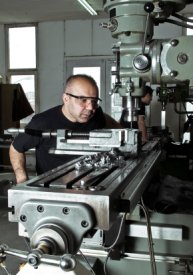Machinist Job Requirements
As mentioned, there are machinist jobs for anyone interested in obtaining one, from the 18-year-old high school graduate with no experience, to the industry veteran looking for a career change. Some companies offer their own apprenticeship programs, while others may require you to complete a program elsewhere or complete an associate’s degree program that provides the training you need.
Some companies offer their own apprenticeship programs, while others may require you to complete a program elsewhere or complete an associate’s degree program that provides the training you need.
Machinists must have the ability to look at schematics, drawings, and designs and understand how to create the tools or pieces the company needs using the available equipment. The machinist must also understand what the tool or equipment he or she is creating will be used for and the properties it must have, such as how much pressure it can withstand, etc. The machinist must also understand what equipment to use, how it works, and how to program it. Machinists’ jobs require a unique combination of mental and physical abilities, which is why they must receive special training before moving on to performing more detailed work.
In addition, machinists must be able to maintain and repair their equipment, which includes cleaning it and keeping it lubricated, and removing grease, rust, stains, and foreign matter from all tools and machines.
Other requirements you might see on a machinist job posting include:
- Machinists perform all necessary bench and machine operations to make new machines or replacement parts, tools, or equipment for the rebuilding of precision-built fabrication machines and machine tools.
- Break down and sequence work assignments to insure proper machining and assembly operations.
- Devise, improvise, and fabricate facilities equipment to accomplish work.
- Perform work in other maintenance classifications when assigned, especially when it is necessary to accomplish assignments.
- Accurately reads and understands engineering drawings, CNC programming requirements, and other instructions for each job.
- Ensures proper set-up requirements, sequence operations, and dimensions and tolerance levels of finished product.
- Machines parts to required specifications and delivery schedules.
- Monitors equipment controls to regulate machining factors such as speed, feed, coolant flow, depth and angle of cut.
- Performs and documents quality checks during machining operations using the appropriate measuring instruments or gauges.
- Ensures that the part meets all specifications.
- Refers to CNC programmers and production management when machining issues arise.
- Proposes process improvements.
- Upholds and participates in company quality and health and safety programs.
